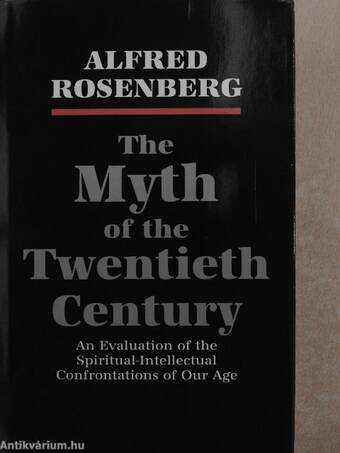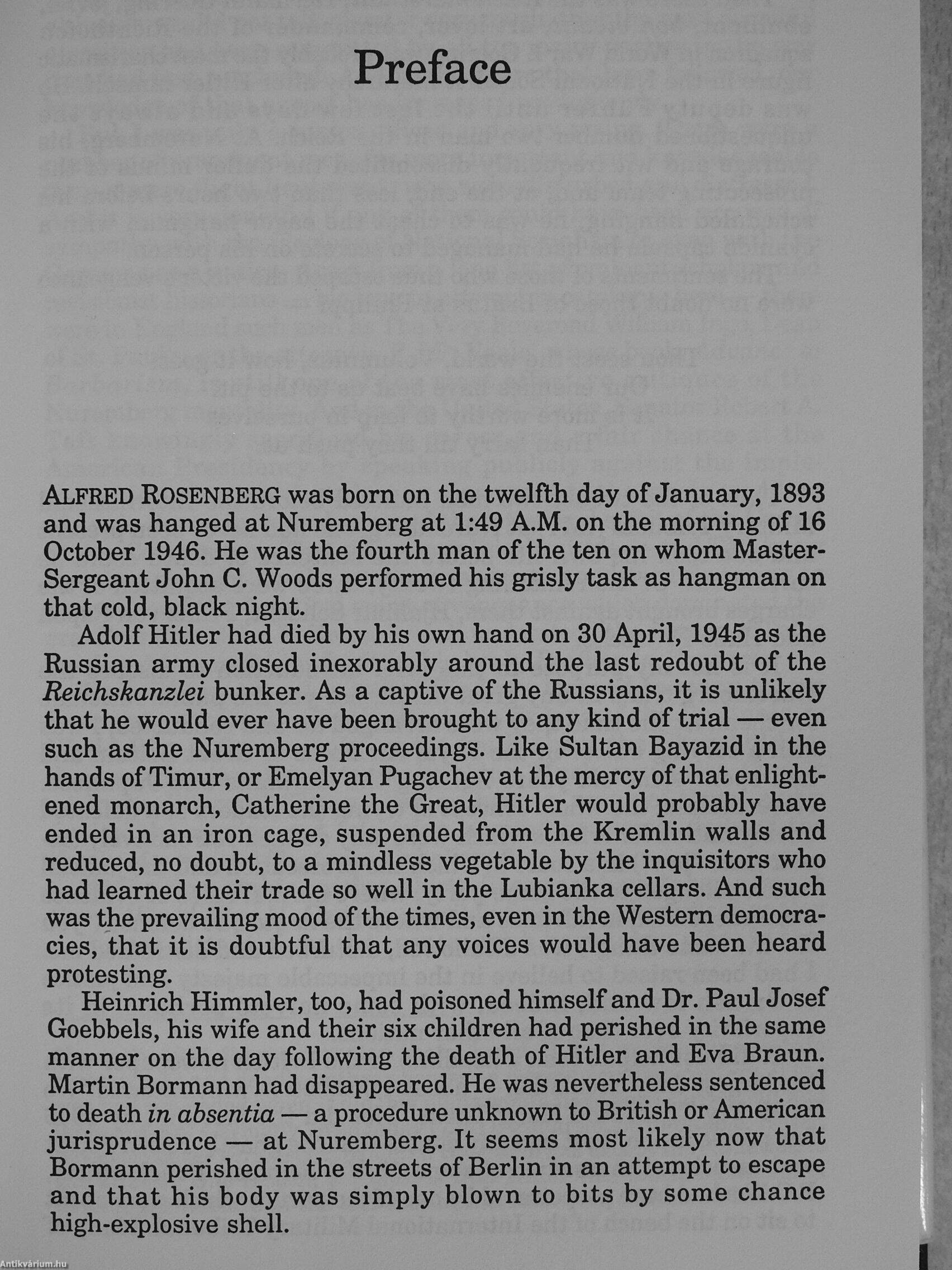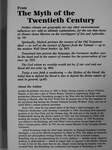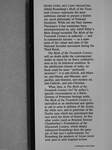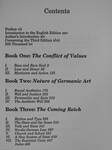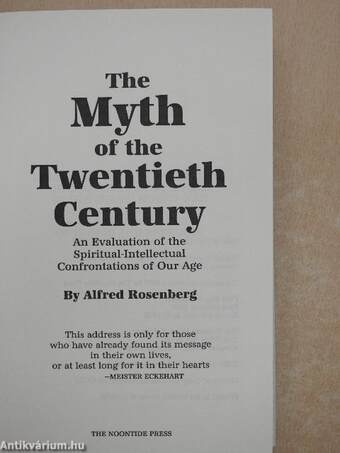1.069.866
kiadvánnyal nyújtjuk Magyarország legnagyobb antikvár könyv-kínálatát

VISSZA
A TETEJÉRE
JAVASLATOKÉszre-
vételek
The Myth of the Twentieth Century
An Evaluation of the Spiritual-Intellectual Confrontations of Our Age
| Kiadó: | The Noontide Press |
|---|---|
| Kiadás helye: | Torrance |
| Kiadás éve: | |
| Kötés típusa: | Vászon |
| Oldalszám: | 470 oldal |
| Sorozatcím: | |
| Kötetszám: | |
| Nyelv: | Angol |
| Méret: | 22 cm x 15 cm |
| ISBN: | 0-939482-44-4 |
naponta értesítjük a beérkező friss
kiadványokról
naponta értesítjük a beérkező friss
kiadványokról
Előszó
TovábbFülszöveg
From
The Myth of the
Twentieth Century
Neither climate nor geography nor any other environmental influences are valid as ultimate explanations; for the sun that shone on Homer shone likewise on the worshippers of Isis and Aphrodite. (p. 16)
Spiritually, Shylock portrays the essence of the Old Testament ideal — as well as the essence of figures from the Talmud — up to the modern Wall Street banker, (p. 263)
Translated into present day language, the Germanic mythos says: In the hand and in the nature of woman lies the preservation of our race. (p. 333)
The God whom we worship would not be, if our soul and our blood did not exist, (p. 462)
Today a new faith is awakening — the Mythos of the blood; the belief that to defend the blood is also to defend the divine nature of man in general, (p.65)
About the Author
Alfred Rosenberg was bom in 1893 to Baltic German parents in Reval (Tallinn), Estonia, at that time a part of Tsarist Russia. Trained in engineering (Riga) and... Tovább
Fülszöveg
From
The Myth of the
Twentieth Century
Neither climate nor geography nor any other environmental influences are valid as ultimate explanations; for the sun that shone on Homer shone likewise on the worshippers of Isis and Aphrodite. (p. 16)
Spiritually, Shylock portrays the essence of the Old Testament ideal — as well as the essence of figures from the Talmud — up to the modern Wall Street banker, (p. 263)
Translated into present day language, the Germanic mythos says: In the hand and in the nature of woman lies the preservation of our race. (p. 333)
The God whom we worship would not be, if our soul and our blood did not exist, (p. 462)
Today a new faith is awakening — the Mythos of the blood; the belief that to defend the blood is also to defend the divine nature of man in general, (p.65)
About the Author
Alfred Rosenberg was bom in 1893 to Baltic German parents in Reval (Tallinn), Estonia, at that time a part of Tsarist Russia. Trained in engineering (Riga) and architecture (Moscow), Rosenberg escaped to the West after the Bolshevik revolution. Settling in Munich, the First World War he became one of the first members of the movement that became the German National Socialist Workers' Party, and one of Adolf Hitler's earliest political associates.
From 1921, when he was named editor of the Party's chief newspaper, the Völkischer Beobachter, until Germany's surrender in 1945, Rosenberg held important positions in the Nazi Party and the German state. He took part in the march on the Feldhermhalle during the abortive putsch of 1923, and was entrusted by Hitler with heading the remains of the Party during Hitler's time in prison. In 1930 Rosenberg was elected to the Reichstag, and with Hitler's rise to power became head of the Party's foreign-policy office. In 1941 he was named Minister of the Occupied Eastern Territories.
Alfred Rosenberg made his chief mark, however, as National Socialism's leading ideologist, a role given official recognition by Hitler in 1934. The author of numerous political and philosophical writings besides The Myth of the Twentieth Century, Rosenberg was an uncompromising foe of every tendency — whether racial, religious, political, or philosophical — which he judged alien or opposed to the Nordic, Germanic soul. It was for this, more than for any alleged crimes during his ministry over the occupied East, that .Rosenberg was condemned and hanged at Nuremberg in 1946.
Often cited, but long neglected, Alfred Rosenberg's Myth of the Twentieth Century represents the most ambitious attempt to present a historical, racial philosophy of National Socialism. While not the Nazi Summa Theologica it has sometimes been mischaracterized as, only Adolf Hitler's Mein A'fl/n/?/exceeded The Myth of the Twentieth Century in authority — and in conmiercial success — as a statement of the values and aims of the National Socialist movement during the Third Reich.
The Myth of the Twentieth Century will no doubt strike the contemporary reader as much by its fierce combative-ness as by its historical erudidon. In the intellectual climate of today, no book could be more "politically incorrect": it is anti-Jewish, anti-Marx-ist, anti-liberal, anti-Masonic, anti-pacifist, anti-feminist, anti-modem art, anti-Catholic, and anti-Christian.
What, then, is T/ie Myth of the Twentieth Century for? Its author's specific circumstances as a Baltic German of Protestant heritage aside, The Myth of the Twentieth Century is unrivalled as an intellectual and spiritual call to arms in defense of the Aryan, the white race, and in particular of the Nordic type which has epitomized that race since the dawn of history. In few other works (such as Houston Stewart Chamberlain's Foundations of the Nineteenth Century, which deeply influenced Rosenberg) does the panoply of that race's achievements, for Rosenberg the products of Aiyan racial soul, pass in such inspired review.
(continued on back flap)
Where The Myth differs from such works as Chamberlain's, Comte Arthur de Gobineau's Inequality of the Races, and the roughly contemporary writings of the Americans Madison Grant and Lothrop Stoddard is in the inmiediacy of the racial threat, and the opportunity of taking effective action, which seemed simultaneously to confront and to beckon to Rosenberg and his comrades in 1930, when the book was published. Three years later, the leadership of the most dynamic nation in Europe was waging active struggle against those groups and tendencies it saw as inimical to the Aryan race.
Whether the reader of today endorses, or more likely, rejects The Myth of the Twentieth Century's stark imperative of racial struggle; whether Rosenberg's fierce antipathies and brutal loyalties attract him or repel him; whether he finds the vaulting literary edifice the author has erected to the mythos of a white race-soul fascinating or horrifying — no reader today, as the lines of ethnic, racial, and religious conflict are drawn once more in blood around the globe, can with wisdom neglect this influential evocation of what the author called "the spiritual-intellectual confrontations of our age." Vissza
Témakörök
- Történelem > Társadalomelmélet
- Idegennyelv > Idegennyelvű könyvek > Angol > Művelődéstörténet
- Idegennyelv > Idegennyelvű könyvek > Angol > Történelem > Egyéb
- Művelődéstörténet > Civilizációtörténet > Európai
- Művelődéstörténet > Eszmetörténet > Történelem > Politika
- Művelődéstörténet > Átfogó művek, tanulmányok
- Filozófia > Témaköre szerint > Tanulmányok, esszék
- Idegennyelv > Idegennyelvű könyvek > Angol > Filozófia > Témaköre szerint > Tanulmányok, esszék
- Történelem > Idegennyelvű > Angol
- Filozófia > Témaköre szerint > Társadalomfilozófia > Egyéb
- Idegennyelv > Idegennyelvű könyvek > Angol > Filozófia > Témaköre szerint > Társadalomfilozófia > Egyéb
- Történelem > Politika > Ideológiák > Fasizmus
- Történelem > Tanulmányok
Alfred Rosenberg
Alfred Rosenberg műveinek az Antikvarium.hu-n kapható vagy előjegyezhető listáját itt tekintheti meg: Alfred Rosenberg könyvek, művekMegvásárolható példányok
Nincs megvásárolható példány
A könyv összes megrendelhető példánya elfogyott. Ha kívánja, előjegyezheti a könyvet, és amint a könyv egy újabb példánya elérhető lesz, értesítjük.



